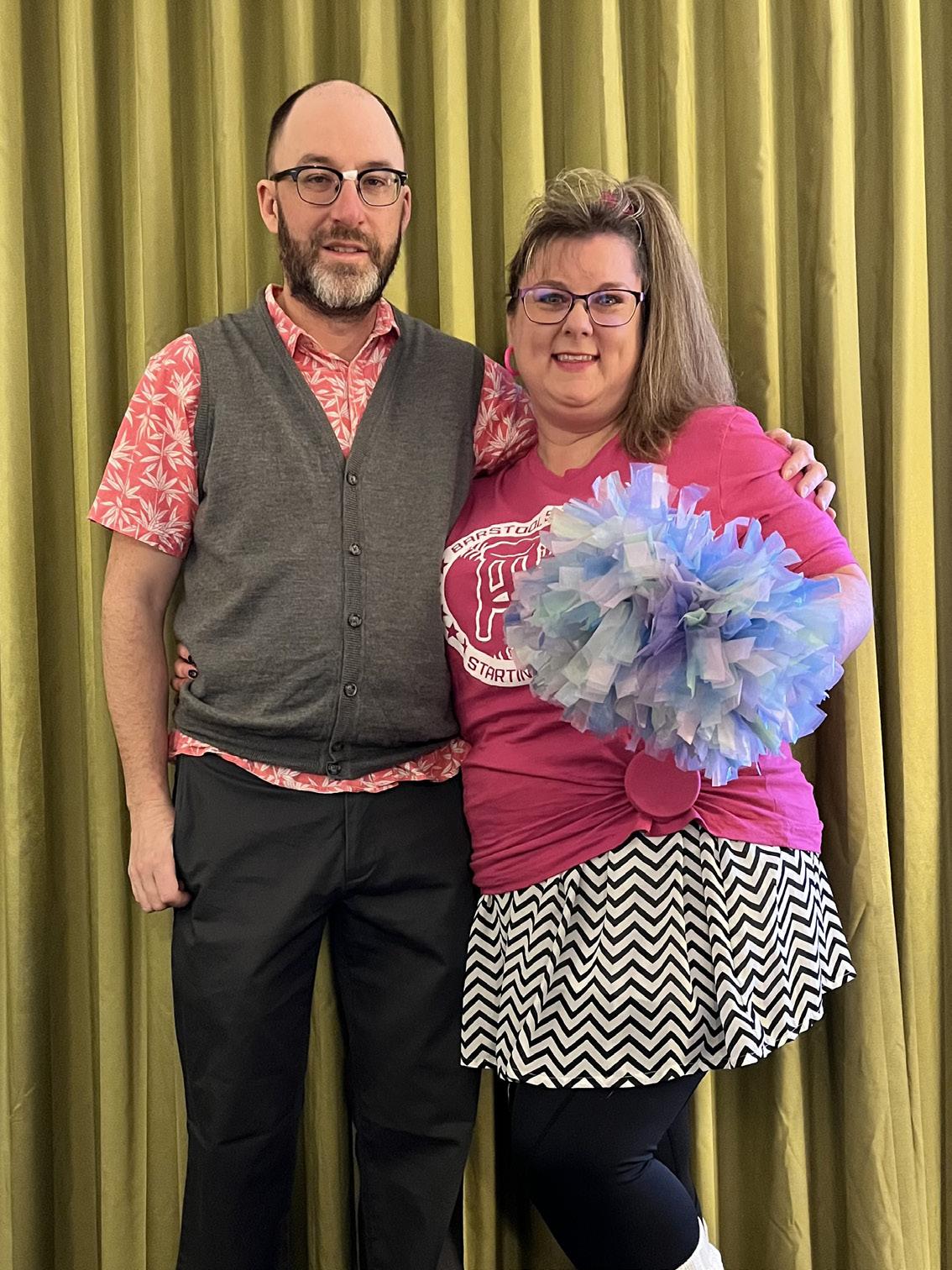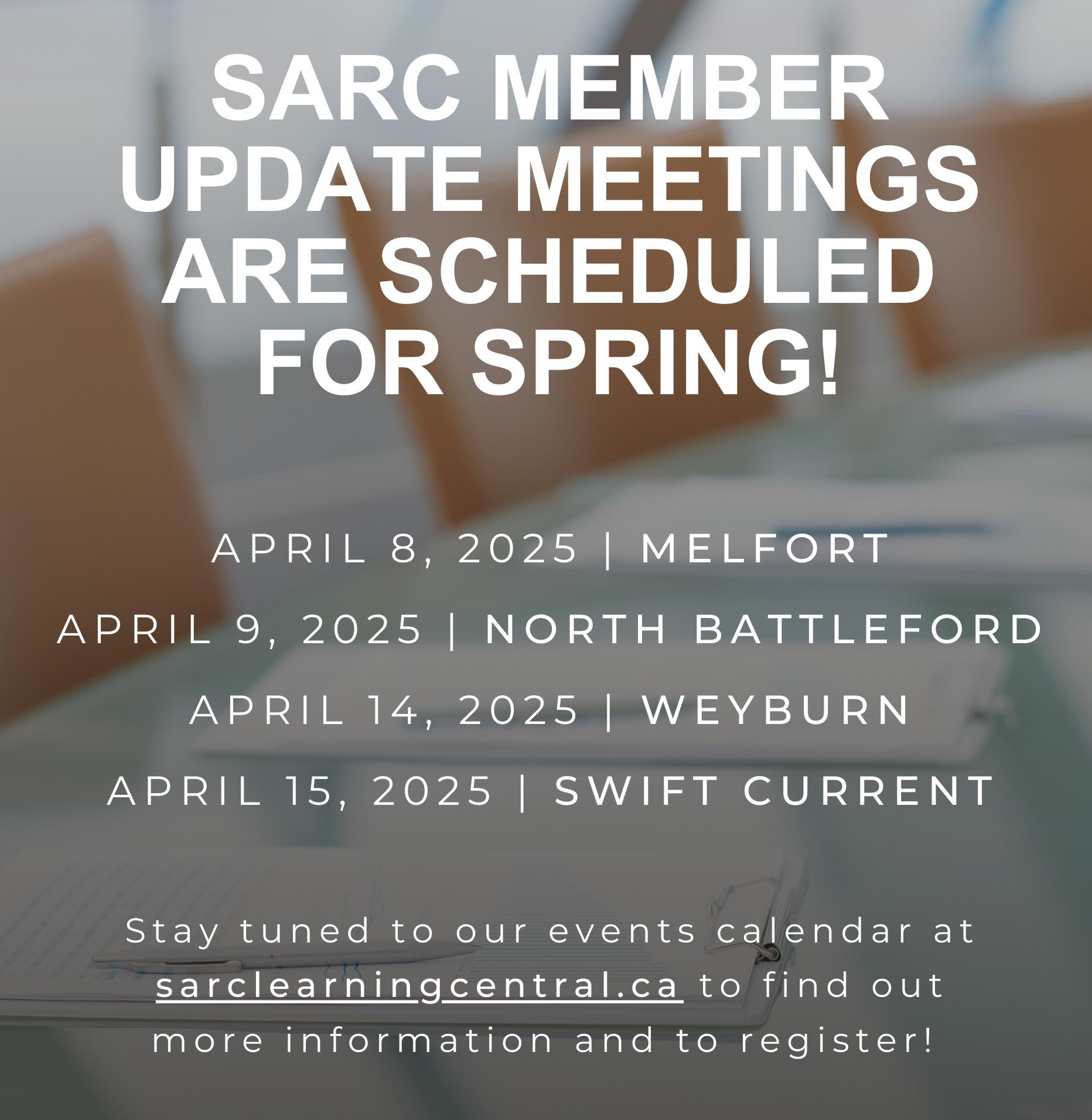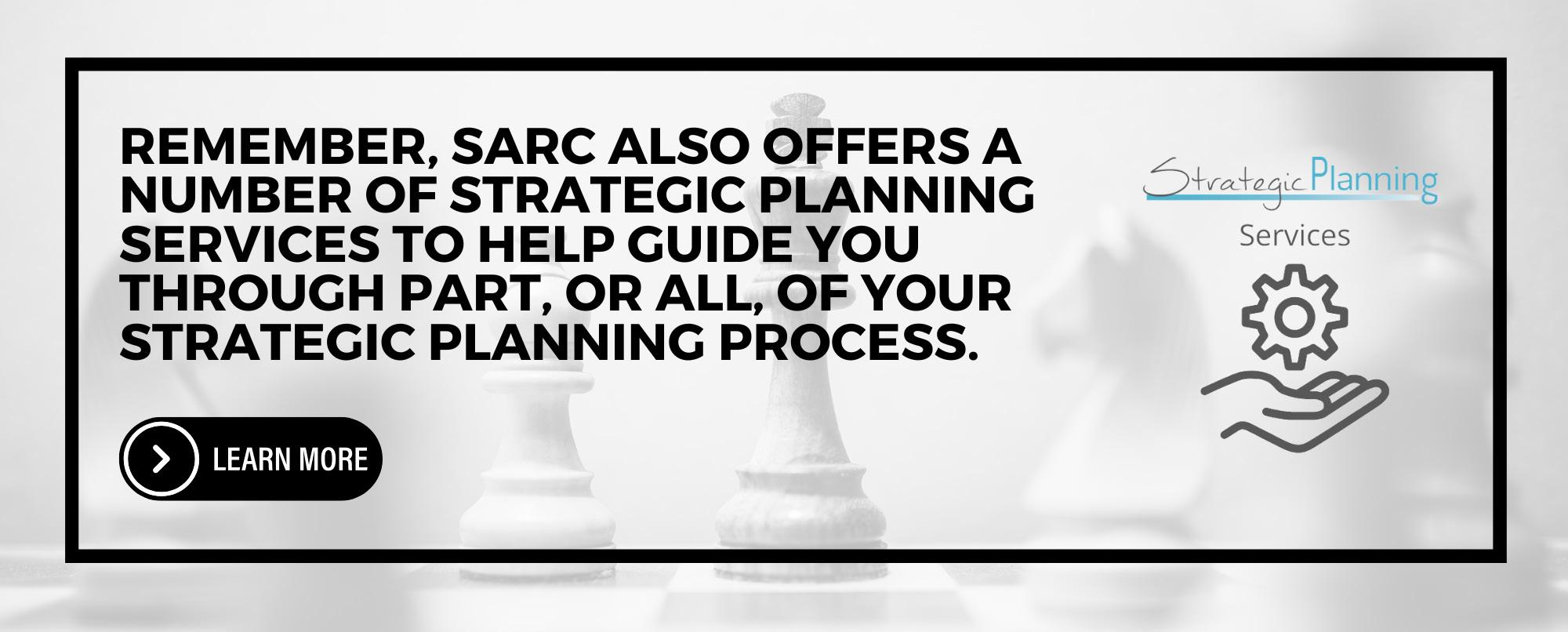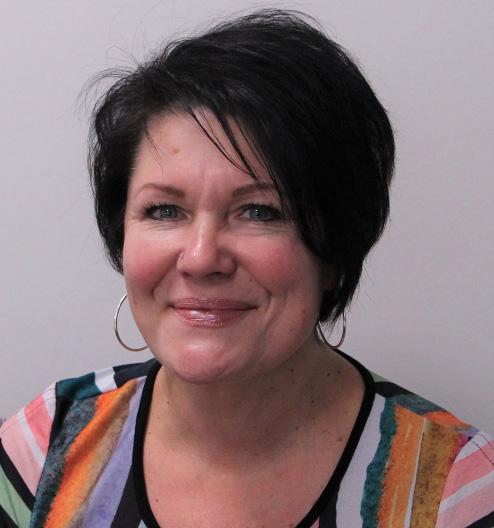Publication for Boards of




Leanne Kerr
North Region Associate Manager Representative Saskatoon, SK
I live in Vonda, SK, with my husband Mark, and our cat Lilly. In 2007, before meeting Mark, I purchased an empty lot in Vonda, a farmhouse from Star City, built a basement, and then moved the house to Vonda. With the help of my dad, I gutted the house, completely renovated it, and added a 2-bedroom basement suite. I had the basement rented out for the last 16 years, but we have now decided that we won’t be renting it out anymore.
Vonda is a unique and vibrant town. It is a true community in the sense that everyone helps out their neighbours, supports local businesses, and does what they can to keep the town alive. An interesting fact about Vonda is that the rink is a former aircraft hangar that was purchased from the Canadian Government at the end of World War II. In 1947 it was disassembled, moved to Vonda from Davidson, and then reassembled.
I come by my passion for serving people experiencing disabilities quite honestly. My dad, Larry Moffatt, was one of the founders of Core Services (now known as Community Living Service Delivery) in Saskatchewan in the 1970s. His dedication to ensuring people live their best lives the way they want is something that guides me in my career today. I started my profession in the Disability Service sector in 1995 at Valley View Centre in Moose Jaw. At Valley View, I worked in the laundry department, housekeeping, and resident care. In 2000, I started working at Cosmopolitan Industries in Saskatoon (while still driving back to Moose Jaw on the weekends to work at Valley View). In 2007, I began my career at Canadian Deafblind Association – Saskatchewan Chapter Inc. in Saskatoon. I started as a Residential Program Coordinator, then the Program Admin Assistant, and in 2022 I was promoted to Executive Director.
In my spare time, I enjoy making cakes for friends and family. My 7 year old nephew still talks about his favourite cake that I made for his 2nd birthday. We enjoy playing board games and have quite a collection of different games to choose from. My husband and I built some raised garden beds and have a drip water system throughout the gardens so we don’t have to bend down to pull weeds or haul around hoses to water the plants, and I actually enjoy gardening now. During the summer, we like to take our camper to various campgrounds around Saskatchewan to get away and enjoy the tranquility of nature. In the winter, we try to get away somewhere warm. This winter we are going on a cruise for the first time. Something I enjoy doing for myself is to go for regular manicures, pedicures, and massages. Taking care of myself prepares me to tackle the challenges that come my way.


Being a part of the SARC Board is very rewarding. They make it easy to contribute towards the goals of the board and even though it is a lot of work, it is fun work. The benefits that CBOs across the province receive from the work that SARC does help me to continue with the work that I do on the board. Being connected to your community in ways other than family and work can be incredibly fulfilling and satisfying.
In my short time on the SARC Board, I have learned a great deal about running efficient board meetings, what it takes for a board to be successful, and how being on a board can be lots of fun. Before starting on the SARC Board, I took the ELEVATE program which helped me understand a bit more about boards, governance, and leadership. Some words that come to mind when I think about my time on the SARC Board are: supportive, collaborative, educational, and inspiring. Everyone makes you feel comfortable and encourages you to participate in discussions as they really care about what you have to say.

October was a very busy month for the SARC Board of Directors. Leading up to the Provincial election and as part of SARC’s Advocacy strategy, we hosted two All Candidates Receptions. A number of SARC Board Members attended one or both of these events that were held in Saskatoon and Regina. They provided a great opportunity to connect and educate candidates running in the provincial election about the Disability Service sector and the challenges and successes experienced by CBOs.
On October 3, the SARC Board also attended SARC/SARCAN’s Annual Employee Recognition Banquet. This annual celebration event recognizes the employment contributions and milestones of people working throughout the SARCAN system and at the SARC/SARCAN administration office. Eighty-eight people were recognized for reaching the milestones of 5, 10, 15, 20, 25, 30, and 35 years of employment. Individuals who retired during the year were also recognized.
The SARC Board joined colleagues from other organizations at SARC’s Annual Fall Conference on October 23 and 24 and attended SARC’s Award Banquet. The SARC Awards are an opportunity for SARC Members to shine the spotlight on the people they support or organizations they partner with who are committed to community development and inclusive employment. At the annual SARC Awards Banquet, recipients are presented with their awards in front of family, friends, SARC Members, government dignitaries, and special guests. This is one of the favourite events attended by the SARC Board each year.
Fall is typically a busy time with events, but important work being done around the board table also occupied board members’ time. Priorities and initiatives included:
• The Partnership with Saskatchewan Recycles and SARCAN’s Agreement to begin the collection, consolidation, and transport of household glass, flexible packaging, and foam packaging.
• Completing a review of both the Pension Plan and Benefits Plans administrated by SARC and available for Members to participate in. This included completing benchmarking assessments on fund performance and fees, along with a full market review and Request for Proposals from benefit providers.
• SARC/SARCAN Investments Quarterly Review
• Annual Insurance and Liability Presentation
• Annual Risk Incident Analysis and Trend Presentation
Alongside committee and board meetings in September, October, and November, the SARC Board took time to celebrate the winter holiday season. The SARC Board, Senior Management, Administration Team, and guests had a wonderful dinner and gift exchange at the beautiful Guenther Farms. The evening was topped off with a fictitious Murder Mystery. This 1980s prom-themed, interactive activity was rich with big hair, a lot of neon, and a great deal of laughter; up until a SARC Board Member was murdered! Then our sleuthing skills were put to the test to solve the mystery of ‘Who killed Bobby the Quarterback?’ (AKA – Lloyd Montgomery).



As we approach March’s Provincial Budget and the end of another advocacy cycle, the thing that stands out the most in terms of impact is of course the Provincial Election, with SARC and the Advocacy Committee committing a tremendous amount of resources and time toward candidate engagement and education. The two All Candidates Receptions in Saskatoon and Regina were well received by the people running for office that we were able to meet there, with many indicating they did not have much awareness about the Disability Service sector or the issues it faces related to employee recruitment/retention and overall funding prior to the events. Of the candidates who attended, 12 ended up being elected, with 9 of those 12 being firstterm MLAs.
Since the election, SARC sent congratulations letters to all MLAs in mid-November and then shared this year’s 2024 MLA Information Package with all MLAs in early December along with requests to meet to discuss the sector’s needs.
We were also able to have our first meeting with The Honourable Terry Jenson, new Minister of Social Services, on December 19. Along with the Minister were Lee Guse, the Minister’s Chief of Staff; Kamel Shazad, Ministerial Assistant – Communications; Richelle Bourgoin, Deputy Minister; and Joel Kilbride, Assistant Deputy Minister –Disability Programs.
After a brief overview of SARC, our role in the sector, and the scope of services provided by SARC Member organizations, we talked about the needs in the sector regarding employee recruitment and retention. We discussed the increasing complexity of support needs of people served by our Members and the risks that everyone is exposed to – people supported, their families, organizations, and the Ministry – when organizations cannot recruit employees with the appropriate qualifications and skills.
The Minister and Deputy Minister expressed interest in initiatives to further professionalize the sector and referenced credentialing projects that the two of them had worked on during their time associated with the Ministry of Immigration and
Career Training (he as the Legislative Secretary to the Ministry and she as the Deputy Minister). They referred to credentialing as one of the many pieces of an effective recruitment and retention strategy, and there was acknowledgement that employees in the Disability Service sector are doing many of the same things as healthcare workers without the formal training or recognition. We agreed that this would be worthwhile to discuss further and relayed the Membership’s recent dialogue around setting educational standards.
When reviewing the official budget request for 2025-2026 as per the 2024 MLA Information Package, we talked about wages needing continued attention and stressed that more funding for employee benefits was also necessary, as benefits had remained relatively unchanged for 20 years. We also talked about the need to reexamine the funding structure and standards for the sector and our commitment to work with the Ministry in this regard.
The Minister expressed an interest to meet with SARC regularly to stay connected to the sector’s priorities and reaffirmed that members of his team (Deputy Minister, Assistant Deputy Minister) would connect with us regularly as well.
For our first meeting with the new Minister, we were pleased with and encouraged by the conversation. As we closed the meeting, he asked that we convey his personal thank you to all of our Members for the work they do, saying that it is so appreciated.
Now into January, we will be connecting with the Ministry again to stress the importance of a meaningful response in the 2025-2026 provincial budget, as we understand the critical state that many of our Member organizations are in regarding recruitment and retention.
Recent federal government policy changes have also added to our Members’ concerns. As of November 1, 2024, Immigration, Refugees, and Citizenship Canada (IRCC) implemented changes whereby post-graduate work permits are now restricted to specific areas facing labour market shortages, including Continuing Care Aides and Early Childhood Educators. The Disability Service sector’s Direct Support Professional position was not identified as facing labour market shortages, so SARC Members are no longer able to engage with these permits. Some Members have been writing letters to their federal Member of Parliament (MP) to advocate for the inclusion of Direct Support Professionals in the list of eligible occupations, and SARC did as well, sending a letter in mid-December to The Honourable Kamal Khera, Minister of Diversity, Inclusion and Persons with Disabilities; The Honourable Randy Boissonnault, Minister of Employment, Workforce Development and Disability Inclusion; The Honourable Marc Miller, Minister of Immigration, Refugees and Citizenship; The Honourable Seamus O’Regan, Minister of Labour and Seniors; Saskatchewan MPs, MPs with parliamentary secretary duties within relevant Ministries (ex. employment, immigration), and MPs on relevant committees (ex. citizenship, immigration, human resources, disabilities).
There has not been a lot of response to our requests to meet with other MLAs, likely due to a number of factors (timing of publicizing MLA contact information postelection coinciding with the start of Legislative Session, the holiday season, new MLAs needing time to get their feet under them, etc.). We did meet with Saskatoon-based NDP MLAs and SARC Members who were able to attend on January 13. In attendance were Don McBean, MLA for Saskatoon Mistawasis and Shadow Minister for Tourism, Saskatchewan Liquor & Gaming Authority, and SaskGaming; Kim Breckner, MLA for Saskatoon Riversdale and Shadow Minister for Trade & Export Development and the Saskatchewan Research Council; April Chiefcalf, MLA for Saskatoon Westview and Shadow Minister for Housing; Brittany Senger, MLA for Saskatoon Southeast and Shadow Minister for Status of Women, Disabilities, and CBOs; and Twyla Harris Naciri, Assistant to Vicki Mowat, MLA for Saskatoon Fairview and Shadow Minister for Health. It was a good discussion, and they expressed their appreciation for the opportunity to learn more about the sector, its needs, and how they as MLAs could support SARC Member organizations.
Having just over 50% of MLAs as new to the Legislature highlights the importance of MLA education regarding the Disability Service sector and the issues that are important to us. While building and maintaining a good rapport and relationship with your MLA is always important, it’s particularly important if you have a new MLA.
So, if you haven’t already done so, take the time to connect over these next couple of months while your MLA is out of session and likely more available within your constituency. Invite them for a tour/visit at your organization to give them some first-hand exposure to the very important work you do and the incredible people you support. Help them connect to all of the reasons why your organization’s services are so valuable to your community and their constituency. Ask them what their goals are as a first-term MLA and if there are particular issues they are passionate about.
Not sure who your MLA is?
Do you have more than one MLA based on the locations of your services?
Find out here: Voters - Elections
Saskatchewan
Getting to know each other should be the priority for this first interaction. As things come to a close, you could request a meeting at a later date to talk more concretely about the issues facing the Disability Service sector.
SARC Members are champions at building relationships; it’s at the heart of how people experiencing disability are supported. This is no different, and it takes time, but setting that foundation and rapport is critical to progress.
If/when you do meet with your MLA, please let us know at our Member Advocacy account at advocacy@sarcan.sk.ca so we can update our log, have an understanding of which MLAs/Ministers are being engaged, and keep others informed as necessary.


by Desiree Tirk

The new year is often a time for fresh starts and improved practices. Whether your board is setting goals, reviewing priorities, or looking to improve communication processes, committing to having more effective meetings is essential for a nonprofit’s success.
“Having effective meetings is dependent on clear, well-organized agendas that are prepared and distributed in advance, ensuring directors understand meeting expectations, having an efficient board chairperson to facilitate the meeting, and having an effective meeting process.” (ELEVATE, Effective Meetings module).
Consider the following tips and strategies to help your next meeting be more effective:
• Commit to aligning board meetings with the organization’s strategic goals for the year. Using a board annual workplan can help inform committee and board meeting agendas, action items, and strategic discussion.
• Revisit your Code of Ethics and Conduct that includes expectations for meeting preparation and board director commitments. Directors who come prepared, participate actively, and contribute to an open and inclusive environment can help make board and committee meetings run more effectively.
• Revisit your board committees’ Terms of Reference. Remind members of the purpose, duties, and expected outcomes of the committee to ensure directors are working towards the same goals and priorities.
• A well-structured agenda improves focus and productivity. It will serve as a guide for the board to keep the meeting on track, making sure all topics are discussed, and will help the secretary to take effective meeting minutes.
• Board meeting agendas are a collaborative effort. The agenda is usually prepared in partnership between the board chairperson and the executive director to ensure operational and governance perspectives are considered.
• Consider using a consent agenda to allow more time for strategic discussion. It’s easy for a board meeting to just become a recap of the prior month’s activities, leaving little time to make decisions or discuss strategic goals and priorities.
• If you are looking for checklists and agenda templates that can help your meetings run smoother and more efficiently, check out the ‘Effective Meetings’ module in ELEVATE.
• Prepare the board meeting package and ensure it is sent out well in advance. The Savvy Director provides a useful meeting PREP Guide and Board Meeting Readiness Checklist that helps directors assess their readiness for upcoming meetings and establish questions to ask on various topic areas.
4.
• Commit to embracing technology to streamline communications for effective board meetings. Utilize online file sharing systems, board portals, or cloudbased storage systems to house board packages for easy access. TechSoup Canada offers a quick guide to optimizing technology for board directors.
• Consider different tools for virtual and hybrid meetings (i.e. Zoom or Microsoft Teams). Use tools that promote discussion and decision-making such as poll features or break out rooms to make meetings more engaging and interactive.
• Ensure diverse perspectives are considered. The board chairperson plays an important role in leading effective meetings by creating an inclusive environment, keeping discussions focused and on track, and building engagement, trust, and open communication.
• If conflict arises, see it as an opportunity for growth and better decisionmaking on the board. According to Boardsource, “If the board is deeply divided, postpone decision-making. Appoint a taskforce [committee] to work on a proposal to the board.” This approach ensures directors feel their input is valued while allowing continued discussion further discussion on the issue, while keeping the meeting on track.
• Avoid information overload. By sending board packages ahead of time and developing an effective agenda, directors can arrive prepared to focus, discuss, make decisions, and prioritize action items.
• Ensure meeting minutes are circulated in a timely fashion. Meeting minutes are a legal record of what occurred in the meeting and help to serve as a reference for future decision-making, and they can be used to follow up on delegated tasks and action plans after the meeting.
• Gather feedback from directors using surveys or informal check-ins at your next board meeting. Consider ways to improve and adjust future meeting formats or focus areas by using a Board Meeting Effectiveness Assessment.
• Provide time for socializing. Offering social opportunities can significantly enhance the effectiveness of meetings by providing time for directors to network, build relationships, and foster collaboration that can carry over to formal meetings. Consider inviting directors to events, hosting a board retreat, sharing a meal, or building in icebreaker activities into board gatherings.
As we embark on a new year, consider implementing one new tip or strategy to ensure meetings are more effective. To learn more about developing agendas, hosting virtual meetings, and ensuring an effective meeting process, visit the Effective Meetings module in ELEVATE.
Spending the past 25 years working in community development in the nonprofit and government sectors, Desiree brings a variety of experience with developing and facilitating workshops and has held positions as Program Manager, Facilitator, and Trainer. Desiree has over 20 years’ experience as co-owner of a business and holds a Bachelor of Indian Social Work and Bachelor of Arts in Native Studies.
To connect with Desiree Tirk and learn more about how strategic planning can help your organization, email her at dtirk@sarcan.sk.ca

